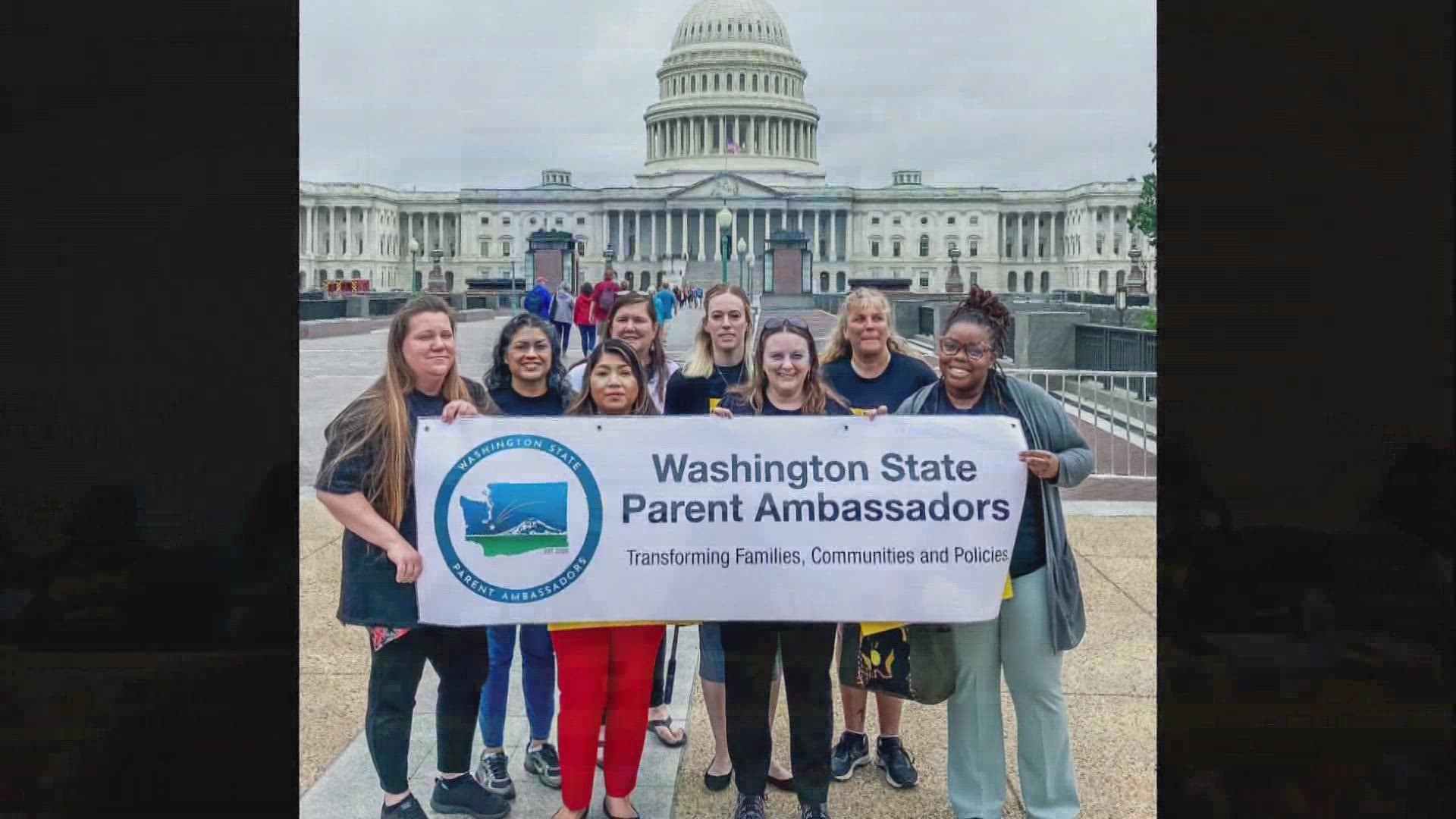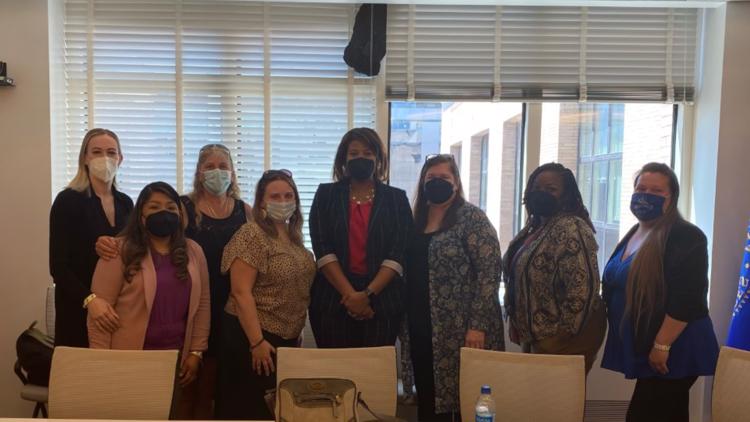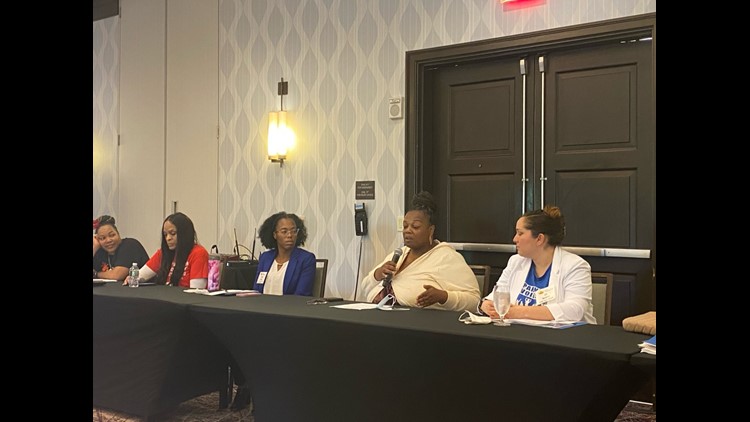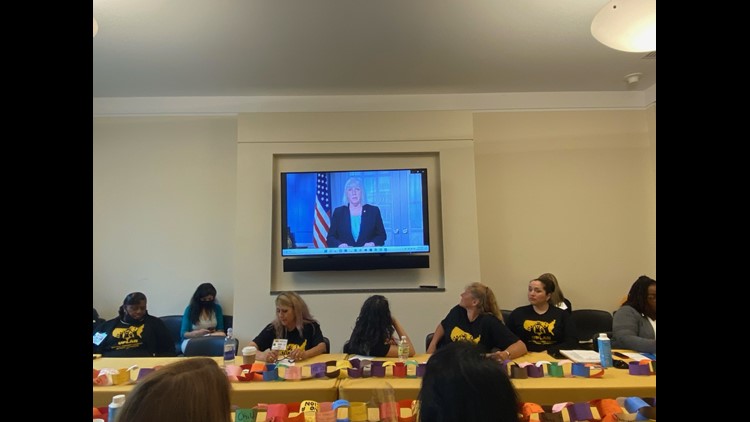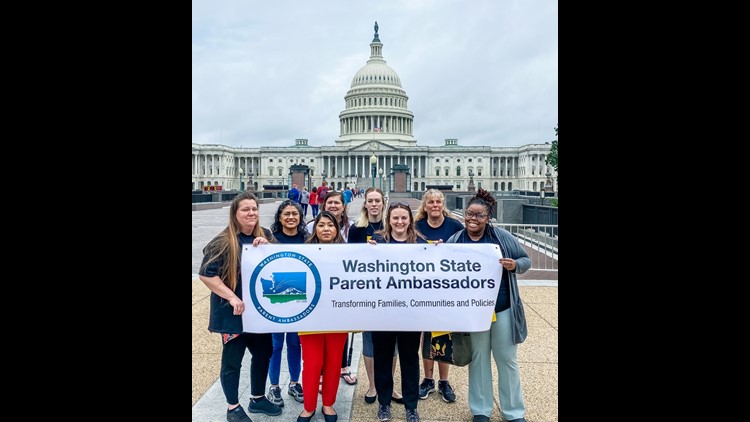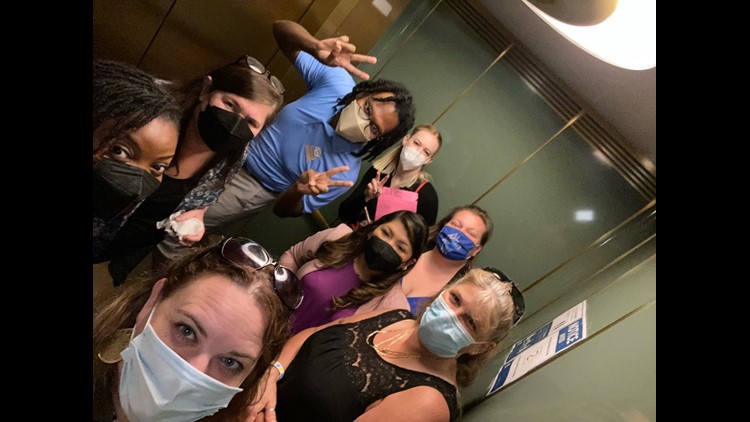WASHINGTON — Eight moms with children enrolled in Head Start programs in Tacoma, Seattle, Olympia and Federal Way traveled to Washington, D.C. this week to share their experiences and petition for help from the federal government, in connection with the Washington State Association of Head Start and the Early Childhood Education and Assistance Program (ECEAP).
Maya Ewings, a mother of two boys ages three and one, worked in early childhood education throughout her career. But when she became a mom, she wasn't able to make enough money to continue those roles while affording care for her children.
“Since then, I've been self-employed as a doula, braiding hair, doing everything I can to make ends meet, but I haven't been able to go back to work because I don't have access to spaces for children to go that they're safe," said Ewings. “If I managed to get a full-time job, I wouldn't qualify for subsidies, and over half my check would be going to pay for daycare. So, I've just been kind of stuck."
Ewings said with having younger children, it's even harder to find care. She said she’s heard from parents across the region that it's becoming more and more difficult.
“Something has to be done," said Ewings. "We need help, we're doing all we can, and we're all just trying to make a living so we can give better to our children and families, and there's all these hurdles in place."
Eight moms from WA visited DC in hopes of inspiring lawmakers, federal agencies to fund childcare programs
Ewings said she was encouraged and empowered by the parents' conversations with lawmakers and federal agencies and is hopeful they will provide better funding support to raise wages for workers to assist families with rising costs. She said it's about both helping parents be able to work and ensuring children and families get the access they need.
"The children are the future," said Ewings. "So in these early learning programs, they're learning social-emotional wellness. Programs like Head Start incorporate health screenings. So these children who may not have access for other reasons from other barriers, of getting to the doctor regularly, they're getting vision screenings, they're getting measured, they're getting taught to take care of their teeth. All these basic skills we need as people anyway, for these people who need it the most, they're not getting access to those things, they're going to be behind in so many other areas."
Along with the rising costs parents face, some child care centers say it's harder and harder to keep staffing levels up. There are a number of reasons for this. A big one is wages, and they're hopeful more federal support could help make headway in that area.
Susan Yang, the executive director of the Denise Louie Education Center, said it's seen the demand for child care grow over the past few months.
"In the beginning part of the pandemic, we didn't have as much demand because parents were trying to figure out what they needed for their children, and in recent months we've seen an uptick in families wanting to register their children for child care," said Yang. "At the moment, we're down about 22 staff, so it's hard to balance out ensuring we have the quality staff that we need and the capacity to be able to support all the families there, and also, for the length of time that families need care."
Yang said one of their concerns going into the future is simply having enough staff to support parents who need care going into the future, including for extended periods of time. They've seen an uptick in people needing before and after school care.
"There are a lot of different sort of pressures," said Yang. "There are a lot of women who left the workforce, there's a lot of data to support that. The wages are also very low, and the demands are very high. It's also hard to find staff that want to be on-site when there are a lot of jobs they can do remotely, but wages are definitely one sort of aspect of it."
The Denise Louie Education Center operates based on a blend of funding sources, including federal, state and city funding and private-pay families.
"We are following Build Back Better mostly because we hope that they will add additional funding for compensation," said Yang. "The parents can't pay more, but the teachers need more, and with inflation and the other pressures, especially in a city like Seattle, it's important for us to be able to give back to the teachers and staff."
To learn more about Senator Murray's proposal, click here.
Working moms: Burnout or Balance

